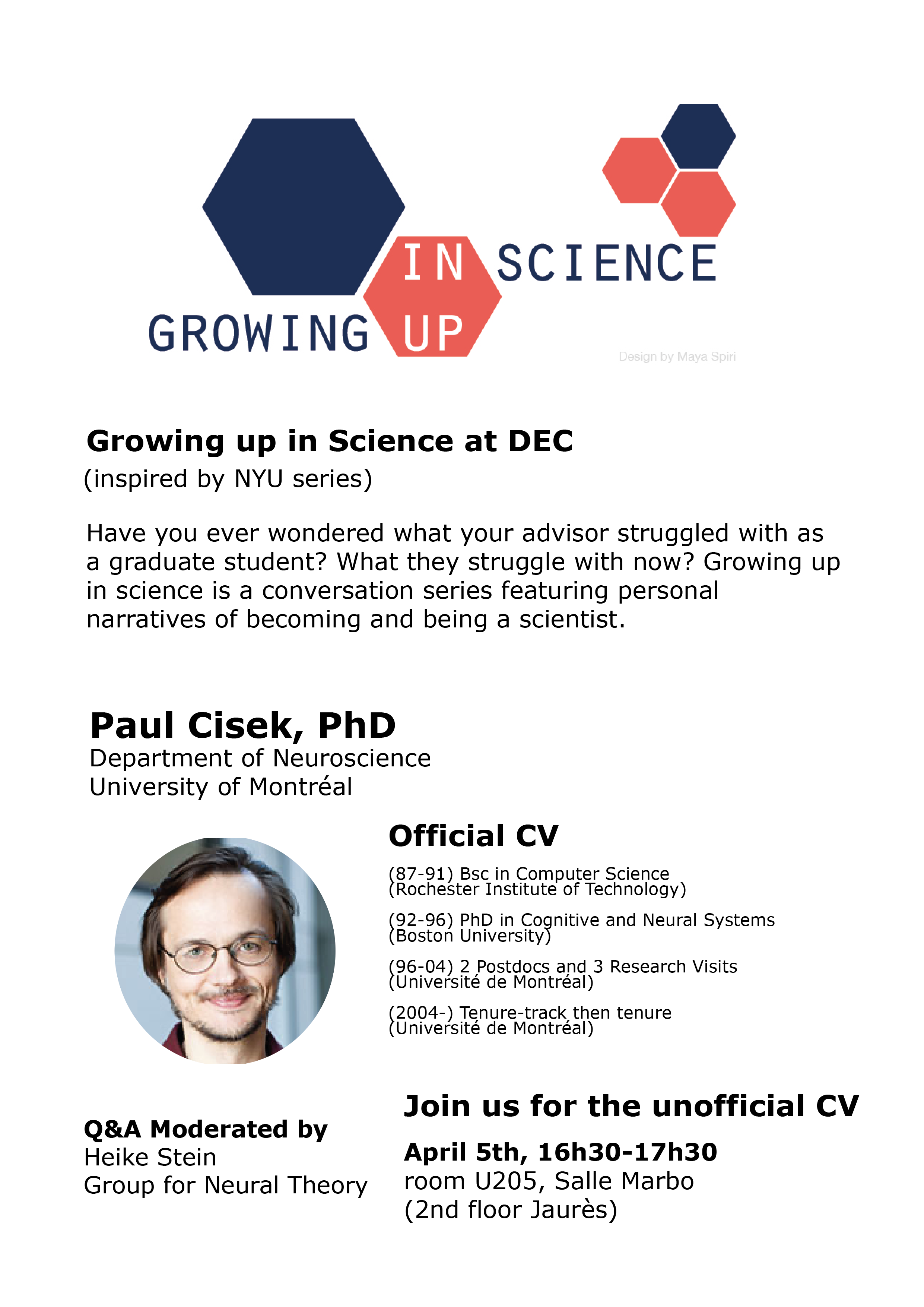
Rethinking behavior in the light of evolution
ENS, amphithéâtre Jaurès, 29 rue d'Ulm, 75005 Paris and on GoToMeeting
Abstract: In psychology and neuroscience, the human brain is usually described as an information processing system that encodes and manipulates representations of knowledge to produce plans of action. This view leads to a decomposition of brain functions into putative processes such as object recognition, memory, decision-making, action planning, etc., inspiring the search for the neural correlates of these processes. However, neurophysiological data does not support many of the predictions of these classic subdivisions. Instead, there is divergence and broad distribution of functions that should be unified, mixed representations combining functions that should be distinct, and a general incompatibility with the conceptual subdivisions posited by theories of information processing. In this talk, I will explore the possibility of resynthesizing a different set of functional subdivisions, guided by the growing body of data on the evolutionary process that produced the human brain. I will summarize, in chronological order, a proposed sequence of innovations that appeared in nervous systems along the lineage that leads from the earliest multicellular animals to humans. Along the way, functional subdivisions and elaborations will be introduced in parallel with the neural specializations that made them possible, gradually building up an alternative conceptual taxonomy of brain functions. These functions emphasize mechanisms for real-time interaction with the world, rather than for building explicit knowledge of the world, and the relevant representations emphasize pragmatic outcomes rather than decoding accuracy, mixing variables in the way seen in real neural data. I suggest that this alternative taxonomy may better delineate the real functional pieces into which the human brain is organized, and can offer a more natural mapping between behavior and neural mechanisms.
GoToMeeting details: https://meet.goto.com/368298341


